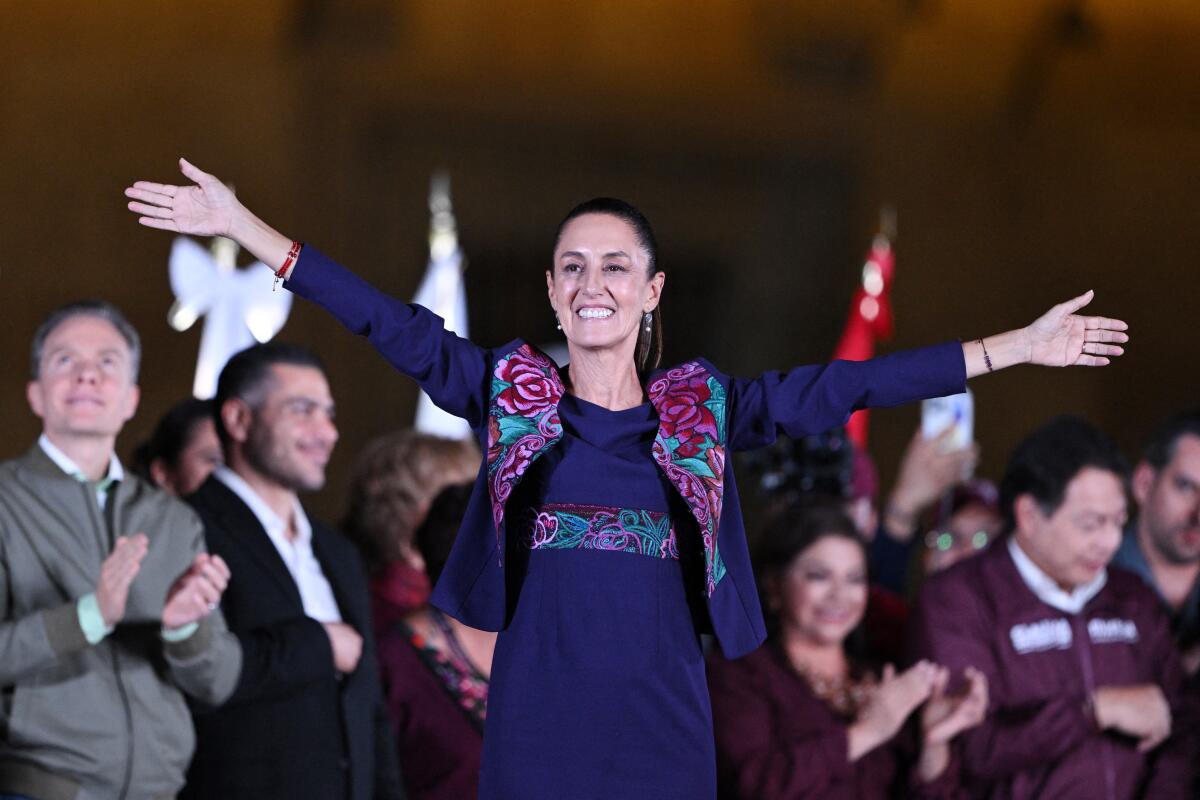Claudia Sheinbaum was inaugurated at a ceremony in Congress for a six-year term that will last until 2030, making history as Mexico’s first female president. Upon taking her oath of office on Tuesday, she will unveil a new government logo that symbolizes the aspirations of young girls—a profile of a young Mexican woman holding a Mexican flag, styled to reflect Sheinbaum’s signature ponytail.
Embracing her groundbreaking achievement in a region known for its conservative values, Sheinbaum steps into a role historically held by 65 men since Mexico’s independence from Spain two centuries ago. The former mayor of Mexico City has gained momentum from the popularity of outgoing leftist President Andrés Manuel López Obrador, her political mentor for nearly 25 years.
As Sheinbaum moves forward, she will need to navigate skepticism and criticism stemming from López Obrador’s recent controversial reforms, including a judicial overhaul aimed at replacing all judges within three years with new jurists elected by popular vote. Critics, such as former President Ernesto Zedillo, have warned that this could effectively transform democracy into a one-party autocracy.
Sheinbaum will also inherit a widening budget deficit that may limit welfare spending and crime-fighting initiatives amid modest economic growth forecasts. She has promised to continue López Obrador’s state-centric economic policies, particularly regarding natural resources, while addressing his administration’s weaknesses in environmental and security issues.
Notably, Sheinbaum is also the first president of Jewish heritage in the predominantly Roman Catholic nation. Her journey to the presidency reflects an impressive four-decade ascent from the daughter of activist academics to the highest office in the land.
Having made history as Mexico City’s first elected female mayor six years ago, she gained recognition for halving the city’s homicide rate through increased security spending and a larger police force. She plans to replicate this strategy nationwide, particularly in regions influenced by drug cartels.
Sheinbaum has committed to maintaining generous social programs, such as old-age pensions and youth scholarships, despite the projected fiscal deficit of nearly 6% of GDP in 2024. While she supports renewable energy initiatives, she also aims to ensure the dominance of Mexico’s state-owned oil and power companies.
With a doctorate in energy engineering from the National Autonomous University of Mexico, Sheinbaum’s career began in 2000 when she was appointed by López Obrador as the environmental chief of Mexico City. She later served as his chief spokesperson during his first presidential campaign in 2006 and was elected to lead Mexico City’s largest borough in 2015. Sheinbaum won the presidency in June with a record margin of over 19 million votes ahead of her closest competitor.










